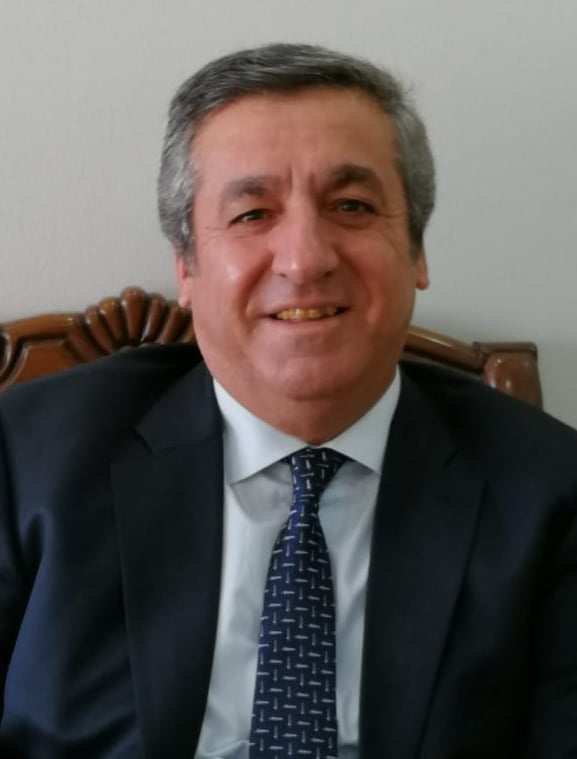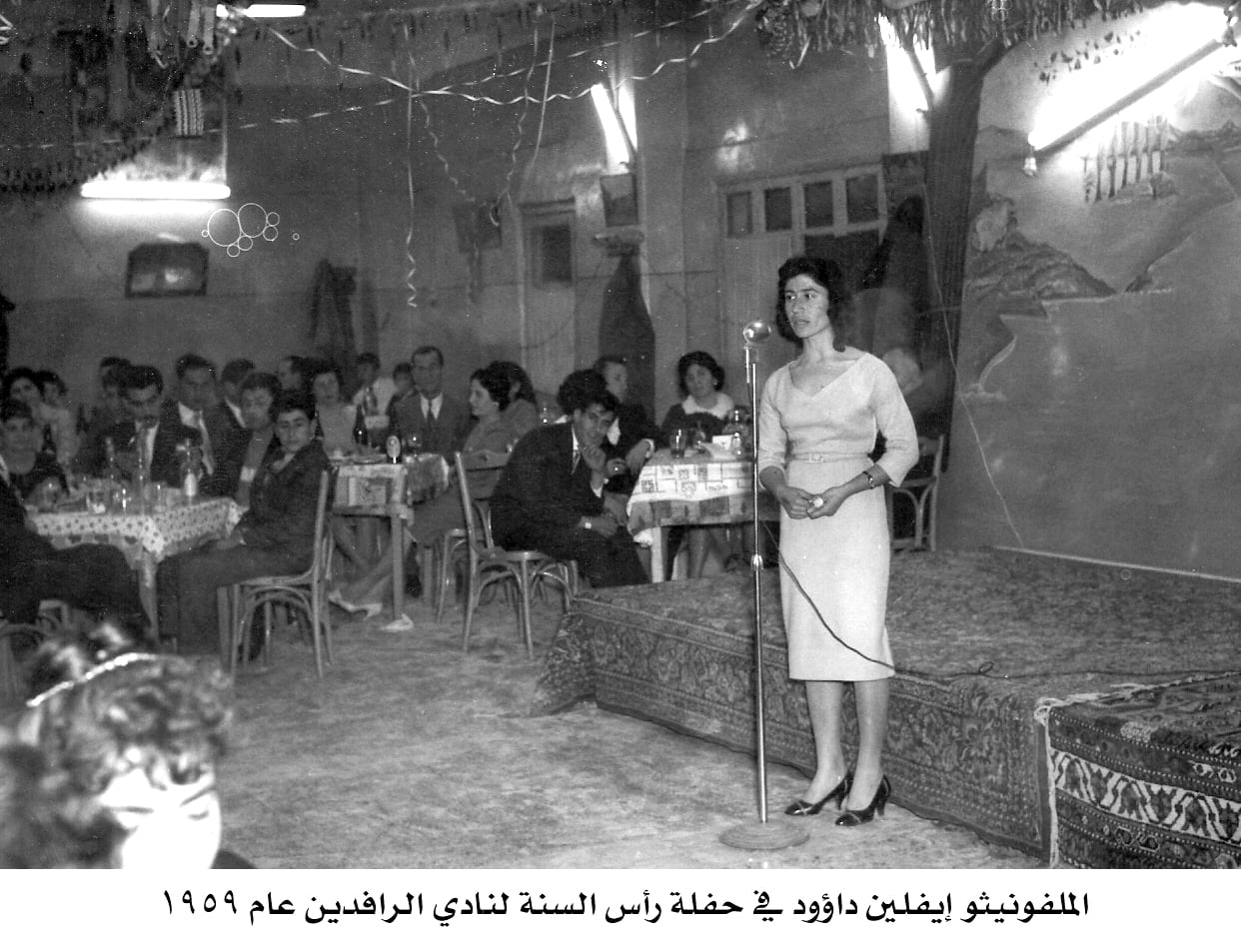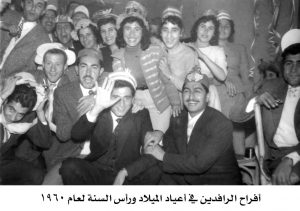“حانيله” في الثقافة السريانية
“حانيله” في الثقافة السريانية
اللغة هي أحد العناصرالأساسية التي تتكون منها الثقافة. من ناحية أخرى، يحتل الإيمان مكانة مهمة بين العناصرالرئيسية التي تخلق الثقافة. إن الجمع بين هذين العنصرين، تداخلهما الدلالي، يضيف معاني مختلفة لما يقال.
لأن الوجود الدلالي لكل اسم أو كلمة يتناسب طرديا مع التعبيرات الفكرية للثقافة التي طورتها واستخدمتها. من وجهة النظرهذه، يمكننا القول أن اللغة، التي تشكل العنصر الأكثر أهمية في الثقافة، هي أيضًا نظام تسمية وتعريف.
لأن أولئك الذين يستخدمون لغة ينسبون معنى للكلمات وفقًا لتلك اللغة ويطورون موقفًا وفقًا لهذا المعنى. ومع ذلك، فإن إساءة استخدام التعاريف يعيق التواصل والتفاهم الصحيين.
يخلق مشاكل في نقل السبب إلى الطرف الآخر. لذلك ، فإن معرفة المعنى الصحيح للكلمات هي الطريقة الوحيدة للتواصل بشكل صحيح في اللغة المكتوبة والمنطوقة. التحدث والكتابة بلغة لا يعني معرفة تلك اللغة. الشيء المهم هو التفكير بهذه اللغة، في الإنتاج، لخلق مساحة فكرية.
من الناحية الثقافية: حانيله
بناء عليه؛ حانيله، وهو اسم مركب سرياني، هي إحدى الكلمات المشتقة من كلمتين مختلفتين لخلق مساحة كبيرة من الفكر والحفاظ على مسؤولية تلك المنطقة على قيد الحياة. إن التعاطف الذي تحمله حانيله، والذي يحمل مشاعر الحب والرحمة والمساعدة في أصله، لا يكسب القلوب فحسب، بل يوفر أيضًا فوائد متعددة الأبعاد.
في تكوينه، إلى جانب المشاعر الدافئة التي تأتي من التفاهم، هناك أيضًا مشاعرصادقة تجعلك تشعربالرضا. على سبيل المثال، فتح قلوبنا لأنفسنا وأحبائنا، وفهم ما هو صعب في الحياة، وامتلاك مشاعرصادقة تجاه المحتاجين والمعتازين، والغرباء وجميع الكائنات الحية ليست سوى عدد قليل من هذه المشاعر.
مهما يكن، فإن الابتعاد عن تغذية الأحقاد والكراهية هو انعكاس آخر لذلك. لأنه ، كما أثبتت النتائج العلمية، “الأفراد الرحيمة لديهم زيادة في إفراز السيروتونين في أدمغتهم. السيروتونين هو هرمون يفرز في الجسم يجعلنا نشعر بمزيد من الراحة والسلام والسعادة. لذلك ، فإن التصرف الجيد يضمن أن يتأثر كل فرد بشكل إيجابي جسديًا وعاطفيًا.” [1]
إن فهم مفهوم ذي معاني عميقة مثل حانيلة من حيث المحتوى؛ يعتمد على المعرفة الكاملة وتفسير أصله الاشتقاقي ومراحل نموه.
لا يمكن فهم هذا المفهوم بالمعنى الحقيقي دون معرفة الظروف التي ولد في ظلها ولأي غرض تم استخدامه ودون الاستفادة من ضوء الفلسفة. لذلك فكما أن اسم حنيلا يجب أن يُفحص اشتقاقيًا كاسم وكلمة قبل تصوره، حتى نقول إن هذا الاسم سرياني، يجب أولاً معرفة محتواه واتجاهاته الفكرية.
لأن الأسماء / الكلمات تحمل معاني ومحتويات ثقافية. إنها تعكس فهم الثقافة للحياة ونمط الحياة ونظرة النظام الإلهي والأحداث والطبيعة والكون. المعنى والمحتوى غير الموجود في عالم الفكر للمجتمع ليس له اسم ولا موضوع. في هذا السياق، يجب أن يكون اللغوي حكيمًا أيضًا. لأن اللغوي الحكيم هو الوحيد القادرعلى فهم التعقيدات الأساسية للغة.
الأسماء والكلمات بالنسبة إلى اللغوي هي الأدوات والآلات لأي معلم حرفة .عندما (لا) تتقن لغة بالمعنى الأدبي والفلسفي، فإن الكلمات / المفاهيم / الأسماء والعناصر الأخرى في اللغة تبلى بمرور الوقت أو تصبح عادية بالتدهور. عندما لا يتم استخدام هذه الكلمات في الكلام اليومي واللغة المكتوبة، فإنها تفقد تأثيرها الدلالي وتصبح باهتة. ربما لهذا السبب اختفت اليوم رؤية اسم حانيلة وأصبح وجودها الأدبي باهتًا.
الرأفة الالهية
كما أشرت في المثال أعلاه، تمامًا كما يحتفظ المعلم بالأدوات التي يستخدمها كثيرًا أثناء العمل عن قرب و يستخدمها كثيرًا، تعمل الكلمات جزئيًا بالطريقة التي يستخدم بها المعلم الأدوات. بمرور الوقت، تبلى الأدوات التي في متناول يد المعلم والتي يتم استخدامها في كثيرمن الأحيان، أو الأدوات البعيدة تصدأ من تلقاء نفسها. هناك احتمالان محتملان، وكذلك نوعان من النتائج. ومع ذلك، بناءً على حدسي وسنوات خبرتي، يمكنني أن أقول ما يلي:
تتمتع حانيله بمكانة مهمة للغاية وفي نفس الوقت مكانة مميزة في الثقافة السريانية. إنها مثل كرة حرارية في مركز الحياة. لها معاني متسامحة. إنها تشمل الوجود كله.
تقع في الطابق العلوي وهي من الطبقات العميقة في المبنى الثقافي. إنها فهم يسهل فهم أفكار ومشاعر الآخرين / يجب أن توجد في جميع مجالات الحياة وخواصها.
إنها تخبرعن الأساليب / المواقف التي يمكن أن تساعد في فهم الصعوبات في الحياة والتغلب عليها في سياق علاقة السبب والنتيجة، من خلال الصراخ من الطبقات العليا والعميقة على حد سواء.
تنصح بالتصرف بمسؤولية في نهجها الذي يقر بالرأفة الإلهية، وأن الآخر يستحق الخير والعدالة. في عناصرها توجد قيم سامية للغاية مثل التفكير في الآخرين، والرغبة في رفاهية الآخرين، والشعور بالمسؤولية.
“حانيلة” عبارة اسمية مشتقة من الكلمتين السريانيتين “حان” و “إيل” ، ولكل منهما معاني مختلفة.
وتعني كلمة حان / الرحيم والحنّان والحافظ و الحامي .
إن كلمة ܐܝܠ (ايل) مطابق لاسم الله في السريانية. والله تعالى يعني الرب والخالق لذلك فإن هذه الكلمة المركبة (حانيلة) لا تحتوي فقط على الرأفة الإلهية، بل تعبرأيضًا عن صفات الرحمة والشفقة واليقظة لهذه الرحمة، وتصف من تحيط به هذه الصفات ويكون له احساس وعمل بها. [2]
اسم حانونو / ܚܰܢܳܢܳܐ مشتق من أصل الكلمة نفسها. على الرغم من أن هذا الاسم يُنسب في الغالب إلى الله، إلا أنه وصف يتم إعطاؤه لأولئك الذين يحملون الفيض العاطفي وحالة العمل للرحمة الإلهية.
اسم Hnono / ܚܢܳܢܳܐ ، والذي يعني الرحمة والحنان والحماية والرعاية والرأفة ، هو أيضًا من نفس الجذر. كذلك تعني الرحمة. يتم استخدامه لحالة العاطفة / الفعل، مما يعني المحبة بالشفقة والحماية والرحمة والمحبة .
حانيلة هي الحكمة
كلما زاد معنى الكلمة أو المرادفة، زادت ثراء هذه اللغة. بالإضافة إلى ذلك، فإن ثراء المعنى في الكلمات، مع العبء الدلالي الذي تحمله من الماضي، يتم قبوله كعلامة على أنه متجذر وقديم.
في هذا السياق، تمامًا مثل حانيلة، فإن الكلمات Hanono / ܚܰܢܳܢܳܐ وܚܢܳܢܳܐ Hnono / لها مكانة عالية جدًا وشائعة بين الأسماء السريانية ذات المغزى.
مجال الاسم أو التسمية باللغة السريانية واسع جدًا وديناميكي. لأنه في هذه اللغة، يمتلك الاسم قوة التأثير / الاقتراح والتفاعل. وعمومًا، تتم التسمية مع توقع الحفاظ على الذاكرة حية، وترميزها، وتساميها، وتعكس التأثير والتفاعل المطلوب.[3]
الاسم أو التسمية، التي تعتبر في غاية الأهمية في الثقافة من حيث “أهمية وعدم أهمية”، لها سمات أو تأثيرات مميزة في الحياة الفردية والاجتماعية. ولهذا استخدمت في السريانية أسماء مثل “حننا، حننو، حنونو” للرجال، و “حننه، حانا، حانيلة” للنساء، مستوحاة من المعاني المذكورة أعلاه.
حانيلة حكمة. يمكن تعريف هذا الاسم، الذي نشأ نتيجة جهد طويل ومرهق، بأنه فهم وأسلوب حياة يعبران عن الميول الفكرية والدينية للثقافة السريانية.
إنه اسم تم تشكيله من خلال معطيات الثقافة السريانية وعجنه بخميرة تلك البيانات التي نجت من أعماق التاريخ. لقد نشأ من الفهم الرحيم للإيثار النشط، الذي يغذي حب الإنسانية، والكون، والبيئة، والطبيعة، والتربة، والتوازن البيئي، وبكلمة واحدة ، جميع الكائنات الحية وغير الحية.
إنه مثل دواء يشفي قلب الإنسان المكسور. إنها تزود صاحبها بجمال وفضائل الإنسانية. إنها تلعب دورًا مهيمنًا مثل القوة الخفية في نجاح وسعادة عمل النية والكلام الصادق والمتسق.
إذا كان العالم الخارجي هو انعكاس لما في قلوبنا ، فإن وجود الحانيله Hanila، الذي يجعل العالم البليد / البارد الذي يحيط بنا واضحًا / دافئًا، يعني خدمة عظيمة لكل من أنفسنا وبيئتنا.
لأن الحانيله، التي لديها شعور بجعل العالم مكانًا آمنًا لجميع الناس وجميع الكائنات الحية، لديها وجهة نظر مختلفة تمامًا عن الأحداث والعلاقات الاجتماعية. لديه فهم يطورمناهج مختلفة تتجاوز “الصواب والخطأ” في أساليب التعامل مع المشاكل والصعوبات.
من وجهة نظر الأنا
بحسب القول، فإن كل حزن في الحياة يتضمن درسًا مهمًا في حد ذاته. لتعلم الدرس، من الضروري أن نتساءل لماذا ولمَ يتم الشعور بالحزن بدلاً من التركيز على الحزن. لأننا كبشر، فإن أطول رحلة لنا في الحياة هي الرحلة التي نقوم بها من دماغنا / عقلنا إلى قلبنا / روحنا.
هذه الرحلة متعبة للغاية ومرهقة مع المواقف الذاتوية / الواعية بالذات. أقصر طريق لهذه الرحلة هي حانيلة. بينما تقدم مساهمات مهمة للناس في النضال من أجل الازدواجية (الظلام النور، الخير الشر، الحق والظلم) الذي ينقل من المعارضة الداخلية إلى التكامل في عملية تحقيق الذات، فإنها تتقبل أيضًا دروس الحزن وتوجهها إلى الشخص “الصحيح” لعدم التبرير والظلم. إنها بمثابة مادة لاصقة تعزز التعاطف الاجتماعي من خلال مراقبة النظرات النسبية ، وتعزيز الحقيقة المطلقة.
حانيلة ظاهرة تنحت وتحكم كل الفضائل. لذلك ، فهي ليست غير فعالة أبدًا. إنها شعور جيد دائمًا. أولئك الذين يرتدونها بالمعنى الحقيقي لن يلوثوا المكان الذي يتقدمون فيه.
بدون اللطف والحنان، ستكون الحياة لا تطاق. عبء الحياة يصبح ثقيل جدا. نظرًا لأنه لا يتعارض مع روح العصر، فهو الترياق الآخر مع هذا الجانب. إن مفهوم “يعاملك بالطريقة التي تريدها” هو التعليم الأساسي لحانيله. على الرغم من تنوع الثقافات والتقاليد، إلا أن هذا الفهم للحانيله مطلق وغير متغير. إنه دائمًا نفس الشيء وفي كل مكان واحد.
لا اعتبار للظلم والقساوة
إذا كنا نريد حياة قائمة على الفضيلة وعالمًا يسوده السلام، فيجب أن تأخذ قيم حانيله السامية ومعانيها السامية الأولوية ونطبقها في حياتنا. إنها مثل دواء ينتقل من قلب إلى قلب، يُحقن من روح إلى روح لتخفيف كل الآلام. كما يوحي اسمها، فهي إلهية في تكوينها.
تفضل الحرية والأصالة، لا الظلم والقسوة. يصبح العالم والحياة أجمل بفضل الناس الذين يحملون الحانيلة في أرواحهم مثل الجوهرة. نورهم يذكرنا بأن العدالة والمساواة والأصالة والحرية ممكنة. يمكن الاقتراح أنه إذا رغبت في ذلك ، يمكن أن يختفي الشر.
بموقفها ضد انتهاك كرامة الإنسان وقيمته، مع حماية صحتنا الجسدية والعقلية بطريقة جيدة، فإنها تكشف عن الخير فينا وتجدد أملنا في أن يكون الشخص الآخر جيدًا أيضًا. بقيمها التي تحمينا من الإحراج الاجتماعي، تسحق ضغينة الحقد، وضغائن المضطهدين، وتنزع الشر إلى من القلوب السيئة.
يهدأ ضجيج العقل والرغبات، ويصبح ساكناً. وفقًا لمعدل الهدوء والركود، يتطور العالم الداخلي نحو التحول والنضج.
لهذا السبب، تعتبر حانيلة فرصة ليس فقط لمن يرون أنفسهم مظلومين وظالمين، ولكن أيضًا للجميع. إنه سلاح سري يجعل العالم مميزًا للجميع. في أخلاق حانيلة، ما لا يقال لا يقل أهمية عما يقال. لأن الشخص الذي يهتم فقط بما يقال لا يفهم سوى نصف القصة التي يسمعها.
إذا كنا نهتم بالحانيلة، إذا أردناها أن تكون نشيطًة في الحياة أو في حياتنا، فعلينا أولاً أن ندرب عقولنا على إدراكها واستيعابها. من خلال تحريرعالمنا الداخلي من الفراغات المؤلمة والظلال المغرية للأنا / النفس، يجب أن نتكيف مع أنفسنا وفقًا لذلك. لأن رغبات حانيلة لا تعذب. لا تسبب مشكلة.
في المجالات / الخدمات التي تنشط فيها الحانيلة ، تتلاشى الأنا وتختفي. لا يصدر عنها أي استجابة. ينشأ الرضا الروحي بدلاً من إرضاء الأنا.
كلما تم استيعاب حانيلة في الداخل، زاد الشعور بها روحانيًا وفي القلب، زاد استرخاء الشخص. الشخص الذي يكون معه الحانيلة لن يرضخ للاستقطاب في حياته الاجتماعية، ولن يختبر أو يعاني أي ضائقة.
بينما يجب أن يقضي قلبنا / روحنا / أذهاننا وقتًا في الهواء الشافي في الطوابق المرتفعة مع الحانيلا حتى نستنير ونسترخي، إذا بقيا مع العفن / الأوساخ في القبو، إذا تجولا في الطابق السفلي، تزداد الروائح الكريهة، وتتكرر المخاوف، ينمو الظلام، وتزداد المشاكل والتكاليف وفقًا لذلك.
لأن الطوابق العليا ليست هي التناقضات، والأضداد، والانفصال، والاستقطاب، والعناد، والمقارنات، والتباهي، والمؤسسات، والأحكام المسبقة، والتكيفات، والأوهام، والتجمعات، والاختلافات المرئية وغير المرئية، والضوضاء المتعبة، والتعدد، والحشد، والوقاحة؛ إنها أرض الألفة والوحدة الروحية والاتحاد والتفاهم والفضيلة.
كلما زاد الوقت الذي تقضيه في هذه الطوابق العليا، كلما تجولت أكثر، كلما زاد الأكسجين النظيف الذي تتنفسه في تلك الطوابق، كلما كان التأثير المدمر لتلك المواقف المدمرة أسرع في التلاشي.
عندما تنكسرآثار تلك المواقف المدمرة التي تدمرالحياة المسمومة، فلن يكون هناك عذاب. لا متاعب سواء. لأنه في أرض الوحدة والتآلف لا يوجد سوى السلام والاستقرار. هناك سلام ورفاهية. الطاقة الإيجابية التي ستنطلق من السلام والرفاهية المحيطين بالعالم الداخلي تفتح الباب للتواصل الصحي مع الأشخاص الآخرين (أي المحاورين الآخرين) في الطوابق السفلية.
الشخص الذي يستطيع أن ينظر إلى الحياة من وجهة نظر الحانيلة، الذي يعمل مثل القوة السرية للكون؛ لا يمكن التمييز بين الناس، والنظر إلى الحياة على أنها رجال ونساء، لتصنيف الحياة أو فصلها أو إغوائها أو تضليلها أو خداعها أو التلاعب بها أو استغلالها أو الإساءة إليها.
تعلمنا الحانيلة أن نعامل الآخرين بالطريقة التي نحبها، من خلال الصدق والإخلاص لأنفسنا، بينما نطالب بالاحترام الذي نعتقد أننا نستحقه من العالم ومن الناس. يجعلنا نسأل أنفسنا ما إذا كنا نتصرف من أجل مصلحتنا الذاتية أو لصالح الكل، بينما نتبع هذا النهج باستمرار. يوضح لنا كيف يجب أن نتعامل مع العالم والناس بعقل وليس بتحيز.
الحياة ليست برد فعل بل يجب الرد بفاعلية
على الرغم من أنه من الصعب القضاء على التحيزات، إلا أنه من السهل التغلب على العقبات غير المرئية عندما يتم التعامل مع الأحكام المسبقة من خلال شعور الحانيلة. فكما أن الجهل بالقانون ليس عذراً أمام القاضي ، فإن قلة الوعي ليست عذراً لمن يريد أن يكون ماهراً في الحانيلة.
إنه لأمر مثير حقًا أن ندرس معنى وأهمية اسم مثل الحانيلة، وهو ما يعني الكثير في السريانية فلسفيًا. لأن الحانيلة كالشجرة التي تمتد أغصانها نحو السماء، وهي دائمة الخضرة تؤتي ثمارها في الفصول الأربعة. ظلها هادئ ومريح، إذ أن جذورها عميقة وصلبة.
لقد كتبت هذا المقال للراحة / الراحة والاسترخاء / الاسترخاء في تلك الظلال. كان هدفي هو تحديث وتفسير كلمة قديمة كانت على وشك الضياع وعلى وشك أن تصبح مملة بغرض الحفاظ على الحياة وتقويتها. بروح الحانيلة التي ساهمت في اكتشاف بيت السلام والاستقرار في عالم الإنسان الداخلي.
لأننا عندما نفهم الخواص الدلالية للحانيلة، مثل الذات الحقيقية، والتي تعني الحرية الحقيقية، والتوازن، والانسجام، واللياقة، والأخلاق الحميدة ، سنطور أيضًا أساليب التطهير من قذارة وصدأ الأنا. .
نتعلم كيفية الاستجابة للحياة بشكل فعال بدلاً من رد الفعل. بهذه الطريقة، نساهم في رؤية حياة أفضل مع الشعوربأنه إذا كان بإمكان أي شخص القيام بذلك، فيمكن للجميع القيام بذلك.
يعتمد إدراك كل هذا على كسرعاداتنا القديمة / أنماطنا الفكرية وتغيير قوالبنا / تصوراتنا. للقيام بذلك، نحتاج إلى أن نلاحظ، ونبطئ، ونتوقف، ونهدأ، ونفعل العكس الجزئي لما فعلناه حتى الآن. لكن بروح الحانيلة وحبها.
لأن الحانيلة تجعل عالمنا أكثر حيوية من أي شيء آخر. دعونا لا ننسى أن ما نراه بالعين المجردة هو مجرد مظهر من مظاهر الجمال غير المرئي. إنها حلوى الحانيلة اللذيذة.
لذلك، يجب أن نحتضن تلك المظاهر الجميلة بوعي أكبر. نحن بحاجة إلى أن نتغذى بشكل أفضل من تلك الأطعمة اللذيذة. يجب أن نتغذى على أن اختلافاتنا المرئية وغير المرئية التي تقودنا إلى الاقتراب، وليس بعيدًا ؛تؤدي إلى التوحيد لا الانقسام.
ودعها تجعلنا سعداء هناك ، أليس هذا من الأشياء التي نحتاجها بشدة؟
ملفونو يوسف بكداش
رئيس جمعية الثقافة واللغة السريانية وادبها / ماردين
[1] زولفيقار أوزكان. التواصل العاطفي، أنقرة، منشورات حياة ، 2015.
[2] بسبب التنبؤات والأوهام، يتم إجراء التقييمات في الحياة الاجتماعية في الغالب وفقًا لأنماط ضيقة وتصورات ضيقة. ومع ذلك، فإن الحانيلة لديها نهج شمولي وروح تجديد تتجاوز التصورات والقوالب النمطية الراسخة. روح حانيلة الصادقة هي نكران الذات. تعمل بتفان. غالبًا ما يُساء فهم هذا التفاني من روح التعريف بسبب قراءات غير كافية / غير كاملة بسبب نقص الخبرة الشخصية. لأن الشخص الذي يتمتع بهذه الروح المخلصة / المتسقة لديه رؤى ودوافع مختلفة غير موجودة في الآخرين. بالنسبة للآخرين، فهو متمايز في القلب والروح والعقل. ليس من السهل أن نفهم كما هو الحال مع النية الصادقة. هذا الوضع النسبي يتطلب وقتا وصبرا.
[3] من أجل لفت الانتباه إلى المعاني / السمات الإلهية في اللغة والثقافة السريانية، تم تشكيل العديد من الجمل الاسمية المركبة باستخدام كلمة “مقاطع”. هذا الموقف، الذي هو تعبيرعن الإخلاص للنظام الإلهي، يجب أن يكون تفسيرًا آخر لإضافة معنى إلى التيار الدافق، وتحدي المشاكل / الصعوبات. أعتقد أنه سيكون من المفيد اقتباس بعض هذه الأسماء للتوضيح. بعض هذه الأسماء التي تنتظر الانقراض في الزوايا المنعزلة هي:
حاديل (الوحدة الإلهية)، أحيل, (الأخ الإلهي)، هابيل / يابيل / يبيلة (العطية الإلهية)، غازيل (كنز إلهي)، زينيل (سلاح إلهي)، زهريل (شعاع إلهي)، توبيل (الخير الإلهي)، طبيل (الأخبار الإلهية)، كينيل (العدالة الإلهية)، موريل / ماريل (الصاحب الإلهي)، نوريل (النور الإلهي)، سبيل / سابيلا (إرادة إلهية)، أثريل (الثروة الإلهية)، سوريل (الصورة الإلهية)، سمحيل (الشعاع الإلهي)، داميلا (الشبه الإلهي)، دانييل (الحكم الإلهي)، حبيلة (الزهرة الإلهية)، هوبيلا (الحب الإلهي)، إبيل (الفاكهة الإلهية)، إميل / إيميلا (الأم الإلهية)، يميلا (البحر الإلهي)، صابريل / صابريل (الرجاء الإلهي) روحيل (الروح الإلهي)، رابيل,رابيلا (العظمة الإلهية)، راميل, راميلا (العظمة الإلهية) رافيل, رافائيل (اللحظة الإلهية) ايميل,ساميلا (الاسم الإلهي)، تاديل ,تاديلا(الربيع الإلهي) إلخ …








